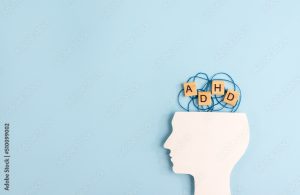Major Depressive Disorder (MDD), commonly known as depression, is a serious mental health condition characterized by persistent feelings of sadness, hopelessness, and a lack of interest or pleasure in most activities. It’s more than just a bout of the blues; MDD can affect how a person thinks, feels, and handles daily activities. This article provides an in-depth look at MDD, including its symptoms, causes, diagnosis, and treatment options, to foster a deeper understanding of this complex disorder.
Understanding Major Depressive Disorder
Major Depressive Disorder is distinguished from normal sadness or grief by its intensity and duration. It involves a constant sense of despair and can lead to a variety of emotional and physical problems, significantly impairing a person’s ability to function.
Symptoms of MDD
The symptoms of MDD can vary from mild to severe and typically include:
- Persistent feelings of sadness, hopelessness, or emptiness.
- Loss of interest or pleasure in hobbies and activities.
- Changes in appetite — weight loss or gain unrelated to dieting.
- Insomnia or sleeping too much.
- Loss of energy or increased fatigue.
- Feelings of worthlessness or excessive guilt.
- Difficulty thinking, concentrating, or making decisions.
- Recurrent thoughts of death or suicide.
Symptoms must last at least two weeks for a diagnosis of MDD.
Causes and Risk Factors
The exact cause of MDD isn’t known, but several factors are believed to increase the risk:
- Biological differences: People with MDD often have physical changes in their brains.
- Neurotransmitters: Changes in the function and effect of these brain chemicals may play a significant role in depression.
- Hormones: Changes in the body’s balance of hormones may be involved in triggering or causing depression.
- Genetics: Depression can run in families.
- Life events: Trauma, loss of a loved one, a difficult relationship, or any stressful situation may trigger MDD.
- Early childhood trauma: Traumatic events during childhood may affect the way the body reacts to fear and stressful situations.
Diagnosis
Diagnosing MDD typically involves:
- Physical exam to rule out other problems that could be causing symptoms.
- Lab tests, like blood work, to check thyroid function and other factors.
- Psychiatric evaluation to discuss thoughts, feelings, and behavior patterns.
DSM-5 Criteria
Mental health professionals use the criteria in the American Psychiatric Association’s Diagnostic and Statistical Manual of Mental Disorders (DSM-5) to diagnose MDD.
Treatment and Management
Treatment for MDD often involves a combination of medications and psychotherapy.
Medications
Antidepressants are commonly used to treat MDD. These drugs can have side effects and may require trying several different types before finding the one that works best.
Psychotherapy
Cognitive-behavioral therapy (CBT) and other forms of therapy can be effective in treating MDD. They help modify negative thinking and behavior patterns.
Lifestyle and Home Remedies
Healthy lifestyle changes can support recovery from depression, such as regular physical activity, getting enough sleep, and maintaining a healthy diet.
Challenges and Misconceptions
Living with MDD can be challenging, and the disorder is often misunderstood as a weakness or something that can be overcome with willpower. It’s crucial to understand that MDD is a serious medical condition requiring treatment.
Conclusion
Major Depressive Disorder is a significant mental health condition that impacts many aspects of a person’s life. Understanding its symptoms, causes, and treatment options is vital for those affected and their loved ones. With proper treatment, individuals with MDD can experience symptom relief and enjoy an improved quality of life.




